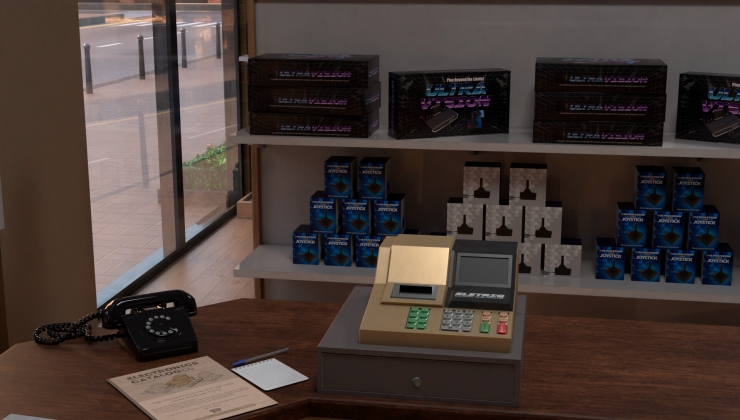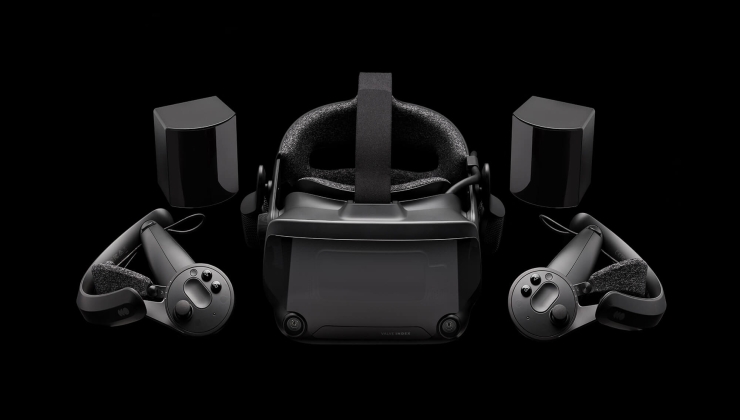While there's a huge focus on Flatpak and Flathub thanks to the Steam Deck shipping with it out of the box, Canonical on the other hand continue with their own Snap packaging and they have a Steam Snap in testing for Ubuntu (and other distros, since Snap also works elsewhere).
In a fresh introduction post on the Ubuntu Linux Discourse forum (thanks OMGUbuntu), it outlines how they're now actually "going all in on the gaming experience on Ubuntu and we’ve started building out a team dedicated to working on just that". Part of that is reducing the need for PPAs and other solutions, and their focus now is on Steam.
The call for testing has now begun on their Steam Snap package which gives you everything you need for Native Linux gaming and for Proton too. It's early days for the Steam Snap so expect issues but they said they will "iterate quickly, and respond to this feedback" on it.
On top of that we can expect more gaming on Ubuntu Linux improvements to come "such as providing easy ways to get more bleeding edge components like Mesa drivers, and even newer kernels and proprietary drivers" — that all sounds great to me.
It's not actually live yet but once it will be, I'll update the post here with instructions they give, which they will also post in the link above. Update: Canonical has now done an additional blog post, going over the instructions. Either install it from the website / Snap Store or via terminal: snap install steam --beta
With the blog post, Canonical once again reiterated their plan to improve Ubuntu gaming mentioning that "the Ubuntu Desktop team is getting down to work planning for the future, and improving the gaming experience features heavily in our priorities (and hiring plan!)". They go on to mention how "serious gamers" continue using Windows primarily, which we all know as Steam puts Linux at about 1% currently (see our Steam Tracker) but they hope by "improving the gaming experience, and the Steam experience in particular, we can ensure that Ubuntu can become a genuine daily driver for gamers".
A better gaming experience in what is still an incredibly popular "entry" distro is superb news.
Last edited by damarrin on 30 Apr 2022 at 7:33 am UTC
Also..
On top of that we can expect more gaming on Ubuntu Linux improvements to come "such as providing easy ways to get more bleeding edge components like Mesa drivers, and even newer kernels and proprietary drivers"
This sounds very very exciting, and has great potential for positive impacts downstream to related distros such as Mint as well. One consistent issue with Ubuntu and Ubuntu based distros has been, while it's a great basis for a distro and very stable, it takes far far too long for updates for things such as drivers and kernels to reach Ubuntu. It's probably the only real major downside of Ubuntu based distros, so addressing that would definitely make Ubuntu far more competitive to Arch based distros again.
That's a great turnaround from a few years ago, when the threatened removal of 32-bit libraries would have crippled the O/S from a gaming perspective.
A better gaming experience in what is still an incredibly popular "entry" distro is superb news.
I think that the idea of removing 32 bits was always to push snaps. I agree that 32bits could be removed in favor to sandboxing, but that time they didn't have anything to show.
If they had a Steam Snap that time, things would be different.
Perhaps Valve going with Arch for SteamOS lit a fire under Canonical. Good!Definitely my impression.
Whatever makes gaming on linux easier, and ubuntu has always been pretty easy to recommend for newbies.
I mean seriously, what is the goal of this? To accelerate climate change by being intentionally wasteful? To incite social unrest by creating an atmosphere comparable to a traffic jam whenever one opens an application?
Fedora 36 is the first Linux release that actually solves input delay to be on pair with windows. They did this unintentionaly as it was an issue related to touchpads. I am extremely happy by this fix as FINALY FINALY Linux is starting to move forward instead of just doing sidesteps and go anywhere.
I'm following this release and didn't read anything about this, looks like gnome improved the way that it handles input to be on par to the FPS and not to the refresh rate.
What fedora 36 have to make it different?
Fedora 36 is the first Linux release that actually solves input delay to be on pair with windows. They did this unintentionaly as it was an issue related to touchpads. I am extremely happy by this fix as FINALY FINALY Linux is starting to move forward instead of just doing sidesteps and go anywhere.Care to explain with more details, maybe a link to relevant bug reports/merges/discussions on the topic?
Last time i measured the input lag, it was into a resonable 23msecs from the keyboard hit to an audio sample playing.
considering that pipewire was configured for a latency of 20msecs, the input lag was just 3msecs, which in turn are more than enough for today refresh rates (1000/3=300hz).
Fedora 36 is the first Linux release that actually solves input delay to be on pair with windows. They did this unintentionaly as it was an issue related to touchpads. I am extremely happy by this fix as FINALY FINALY Linux is starting to move forward instead of just doing sidesteps and go anywhere.Sounds more like a bug to me that you had there.
I've been gaming on Linux since years, including very fast-paced games (FPS) on both Ubuntu- & Arch-based distros and I've yet to notice any input lag (excluding lag that is caused by the CPU being overburdened).
Last edited by TheSHEEEP on 29 Apr 2022 at 5:13 pm UTC
Flatpak already has several issues, I think, with Proton, most of them fixed but still... how is this any different?It works on one distro instead of all distros. It can be download from a single store where the server software is unavailable so you are at the whim of a single company. It provides temporary solution until Canonical realizes they lost and drops snaps in favor of flatpaks.
Steam as a snap package? That is very unwelcome - I hate applications updating behind my back. Mozilla provide an official Firefox PPA, but I hope Canonical don't mess with the Steam APT package.
The Mozilla Team PPA is not by Mozilla, it's by a voluntary group inside Canonical (or at least they where some years ago). Mozilla are the ones that build the snap for Ubuntu.
Last edited by F.Ultra on 29 Apr 2022 at 5:53 pm UTC
Remember the time basically every major application had a .deb package available and most the disk space was available for games and data and stuff, because applications where small and started nearly instantly and... actually...worked...?
I mean seriously, what is the goal of this? To accelerate climate change by being intentionally wasteful? To incite social unrest by creating an atmosphere comparable to a traffic jam whenever one opens an application?
The goal is most likely to create a shared common framework for game devs to write games for so they don't have to bother with which versions of a specific library exists in your or mine distribution of the week, and to sandbox the whole thing so that it doesn't matter that the bundled libs are old and insecure.
Now I'm by no means defending snaps here, I hate the "new" type of distribution regardless of if it's snap, flatpack, appimage, docker or whater. But if there are two applications in particular where it at least makes some sense then Firefox and Steam is it since both where already bundling custom compiled versions of various dependencies so the overhead and different vs a plain deb isn't that much.
Of course unbundling Firefox would have been the preferred way IMHO but I think solving world peace and world hunger would be the easier option (and also far more worthy a cause).
The Mozilla Team PPA is not by Mozilla, it's by a voluntary group inside Canonical (or at least they where some years ago). Mozilla are the ones that build the snap for Ubuntu.
Exactly it's not Mozilla that provides the PPA.
https://wiki.ubuntu.com/MozillaTeam
Bug reporting is specific to Ubuntu with the use of Apport and Launchpad.
https://wiki.ubuntu.com/MozillaTeam/Bugs
And they also mention this:
Is the problem Ubuntu specific?
When reporting a bug, it is often useful to determine whether the problem is specific to Ubuntu builds of Firefox and Thunderbird. In order to determine this, please try to recreate the problem in an official Mozilla build of Firefox or Thunderbird. These can be downloaded from the following locations
That's a great turnaround from a few years ago, when the threatened removal of 32-bit libraries would have crippled the O/S from a gaming perspective.
A better gaming experience in what is still an incredibly popular "entry" distro is superb news.
When was it? Even Arch, who was one of the first distro to drop 32-bits support, still have 32-bits libraries (but in a repository that have to be activated explicitly), and is really good for gaming (well, even Valve is using it for SteamOS…).
I'd be happier with snaps if at least they started faster. 10 secs for FF from an NVMe drive, 40 seconds from a spinning drive in a recent Ubunt is a joke.
The downside of duplicating shared libraries is that it does not take advantage of the system page cache (or ARC for ZFS), so load times are higher. :/













 29 Apr 2022
29 Apr 2022


 How to set, change and reset your SteamOS / Steam Deck desktop sudo password
How to set, change and reset your SteamOS / Steam Deck desktop sudo password How to set up Decky Loader on Steam Deck / SteamOS for easy plugins
How to set up Decky Loader on Steam Deck / SteamOS for easy plugins
See more from me